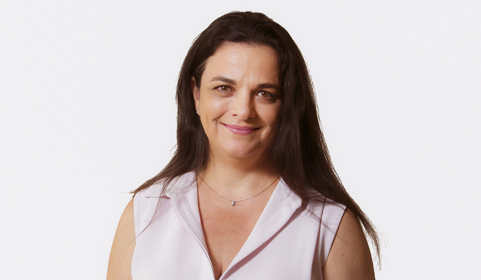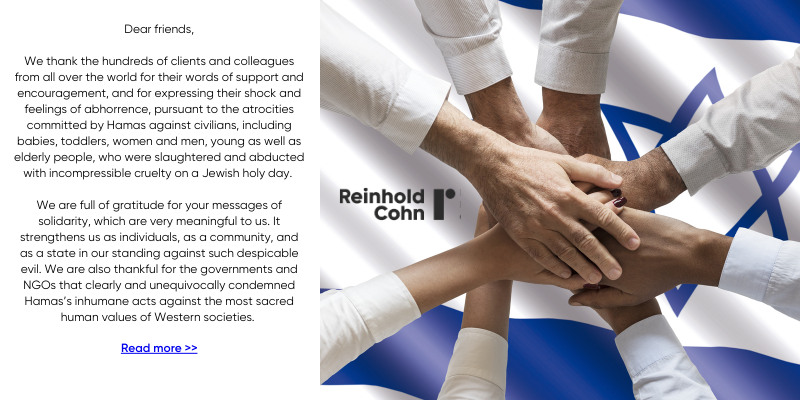Israel Will Become an Active Member of the Madrid Protocol as of September 1, 2010

On May 20, 2010, the Israeli Government decided to become an active member of the Madrid Protocol, with effect as of September 1, 2010. The implementation of the Madrid Protocol will trigger several important changes to the overall regime of trademark registration and maintenance in Israel. On September 1, 2010 some other changes in the Israeli trademark law will also come into effect. Some of the Madrid Protocol implications as well as some of the other changes are discussed in this newsletter.
EXTENDING AN INTERNATIONAL REGISTRATION TO ISRAEL: ISSUES TO CONSIDER
The general advantages of the International Registration System are well known. Users of the International Registration System, who may already extend their International application to more than 80 countries, may soon extend it to Israel as well, thereby saving some of the filing costs, as well as some of the costs associated with renewals and with recordal of changes.
Israel is an examining country, meaning that a trademark application is examined and may be challenged based both on absolute and on relative grounds of registerability. Strict examination standards are applied by the Israeli Trademark Office in matters of inherent registerability and distinctiveness, particularly in respect of non-traditional marks. Moreover, even when the mark as a whole is inherently registerable, acceptance is often subject to a disclaimer of the exclusive right in certain components of the mark. The Office also applies a relatively strict policy in respect of the description of goods and services, allowing very wide descriptions only in exceptional cases. Relative rights, namely registerability vis-à-vis earlier registrations and applications, are also being examined by the Israeli Trademarks Office.
Occasionally, local obstacles to registration may surface, even where corresponding marks in other jurisdictions were not considered a registration bar, due to the differences between the Latin script and the Hebrew script1.
Seeking trademark protection in Israel through an extension of an International trademark may, no doubt, involve some cost-saving at the filing stage. However, many such designations to Israel are expected to be initially refused by the Office while applying the examination standards briefly discussed above, with the consequent need of trademark applicants to engage in active prosecution with the associated examination-related costs.
In summary, while those applicants currently using the Madrid Protocol should naturally wish to designate Israel as well, as part of this process, rather than filing nationally in Israel, they should nonetheless carefully consider the specific trademark concerned in the Israeli context. In any event, proceeding via the Madrid Protocol would not obviate the need to clear the mark by a local availability search.
INTERNATIONAL TRADEMARK EXTENDED TO ISRAEL AND USED UNDER LICENSE
Under Israeli trademark law, use of a registered trademark by a person other than the registered owner may not be regarded as “use of the mark” by the trademark owner, unless said other person is a duly registered “Authorized User”. In other words: in order for the use of a licensee to accrue to the benefit of the registered owner of a mark, the license has to be recorded in the Trademark Register. The license should be recorded even where the licensee is a wholly owned subsidiary of the licensor.
The legal requirement to record a license has several important implications. For one, non recordal of the license where the only use is by a non-recorded licensee, renders the registration vulnerable to cancellation on the grounds of non-use. Furthermore, use of a trademark by a non-recorded licensee brings up a risk of loss of the distinctive character of the mark, as well as uncertainty as to the rights in a trademark in case of a conflict between the registered trademark owner and a past licensee.
The need to record a license and the implications of not doing so apply also to an Israeli extension of an International registration.
Trademark owners should, thus, take note and make sure to timely record a license in an Israeli extension of an International registration so as not to lose their trademark right.
MODIFICATION OF A TRADEMARK WILL NO LONGER BE POSSIBLE
The current law includes provisions that allow a trademark to be modified in a manner that does not substantially affect the distinctive identity of the mark. However, according to new provisions with effect as of September 1, 2010, a trademark owner will no longer have the option to modify a registered (or pending) trademark.
There is still an opportunity to modify existing registrations and pending applications until August 31, 2010. Thus, brand owners would be wise to review their Israeli trademark portfolio, particularly their stylized and device trademark registrations, and consider modifying existing trademark registrations which, while substantially similar to the current version of the mark as used, are, nonetheless, not up-to-date.
INTRODUCTION OF MULTI-CLASS REGISTRATIONS
Under current law, no multi-class registrations were possible necessitating, in the case of a trademark intended for use in multiple classed, the filing and maintenance of multiple trademark registrations. A multi-class registration system will be introduced and will, of course, reduce the costs of obtaining and maintaining national trademark registrations in Israel.
Moreover, an applicant may request a division of a multi-class application prior to registration, or the consolidation of several applications or registration into one multiclass application or registration, provided they have the same filing and priority dates.
SHORTENING OF TRADEMARK MAINTENANCE TERMS
Currently, a trademark is initially registered for 10 years with subsequent maintenance fees extending the terms by 14 years each time. This 14 year term has now been shortened to 10 years. Existing registrations that will be renewed up to August 31, 2010 will be renewed for 14 years, whereas thereafter the new 10-year term will apply.
1 At times two trademarks, that are considered to be distinct from one another in their Latin script, may be regarded as confusingly similar in their Hebrew transliteration and vice versa.
This article is provided for general information only. It is not intended as legal advice or opinion and cannot be relied upon as such. Advice on specific matters may be provided by our group’s attorneys.
